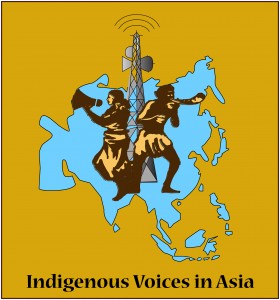The indigenous peoples who are largely concentrated (70%) in Asia region of more than 200 million continue to experience social injustice and discrimination. Their identities and collective rights continue to be denied by states particularly their rights to their lands, territories and resources, cultural heritage and self-determined development. At the same time, indigenous peoples continuing contributions to nature conservation, food security, cultural diversity, conflict resolution among others are not being recognized including the roles and contributions of indigenous women. Due to the historical marginalization and discrimination in all its forms, indigenous peoples have very limited representation and participation in democratic processes including in the media and other communication channels. Further, indigenous peoples have little voice on policies and decisions affecting their lives, which is aggravating and compounding their invisibility in the wider society.
In this backdrop, UN Declaration on the Rights of Indigenous Peoples (UNDRIP) was adopted in 2007 in order to achieve equality, justice and development for indigenous peoples. It also recognizes the rights of indigenous peoples to effectively participate in national affairs as well as to have access to information and media, and to establish their own media. The article 16 explicitly stipulates that:
Indigenous peoples have the right to establish their own media in their own languages and to have access to all forms of non-indigenous media without discrimination.
States shall take effective measures to ensure that State-owned media duly reflect indigenous cultural diversity. States, without prejudice to ensuring full freedom of expression, should encourage privately owned media to adequately reflect indigenous cultural diversity.
In the context of advancing indigenous peoples rights in the wider society through all form of media, AIPP established the Indigenous Voice- Asia Network with the call: Our Voice Our Rights. This journey started with five partners in five countries and gradually expands into more countries and partners across Asia. The Indigenous Voices in Asia (IVA) activities have been supported by the Swedish International Development Cooperation Agency, SIDA since December 2012. Over the years the IVA has formed network at the national as well as at the regional levels. Indigenous Voices in Asia Network (IVAN) was formed in 2013 as regional platform to move forward the human rights issues at the global and regional levels engaging with national media networks. Since its inception, IVAN has been organized annually with growing interest from media practitioners, rights activists, civil society organizations (CSOs) and other institutions. For further information about IVAN:http://iva.aippnet.org/indigenous-voices-of-asia-network-ivan/
Objectives
- To strengthen inter-learning and skills exchange and collaboration among the indigenous media, rights activists, mainstream media representatives, educational institutions and like minded stakeholders,
- To strengthen the Indigenous Voices in Asia Network (IVAN) and move forward the rights of the indigenous peoples in solidarity with media professionals and rights activists.
Expected Outcomes
- Stronger and expanded IVA network among all categories of participants
- Increased partnership and cooperation at the national and regional levels
- Increased capacity of the participants particularly activists in using different forms of media;
- Increased knowledge on the situation of media and of the key issues of indigenous peoples In Asia
- Increased awareness about the culture and situation of indigenous peoples in Asia

